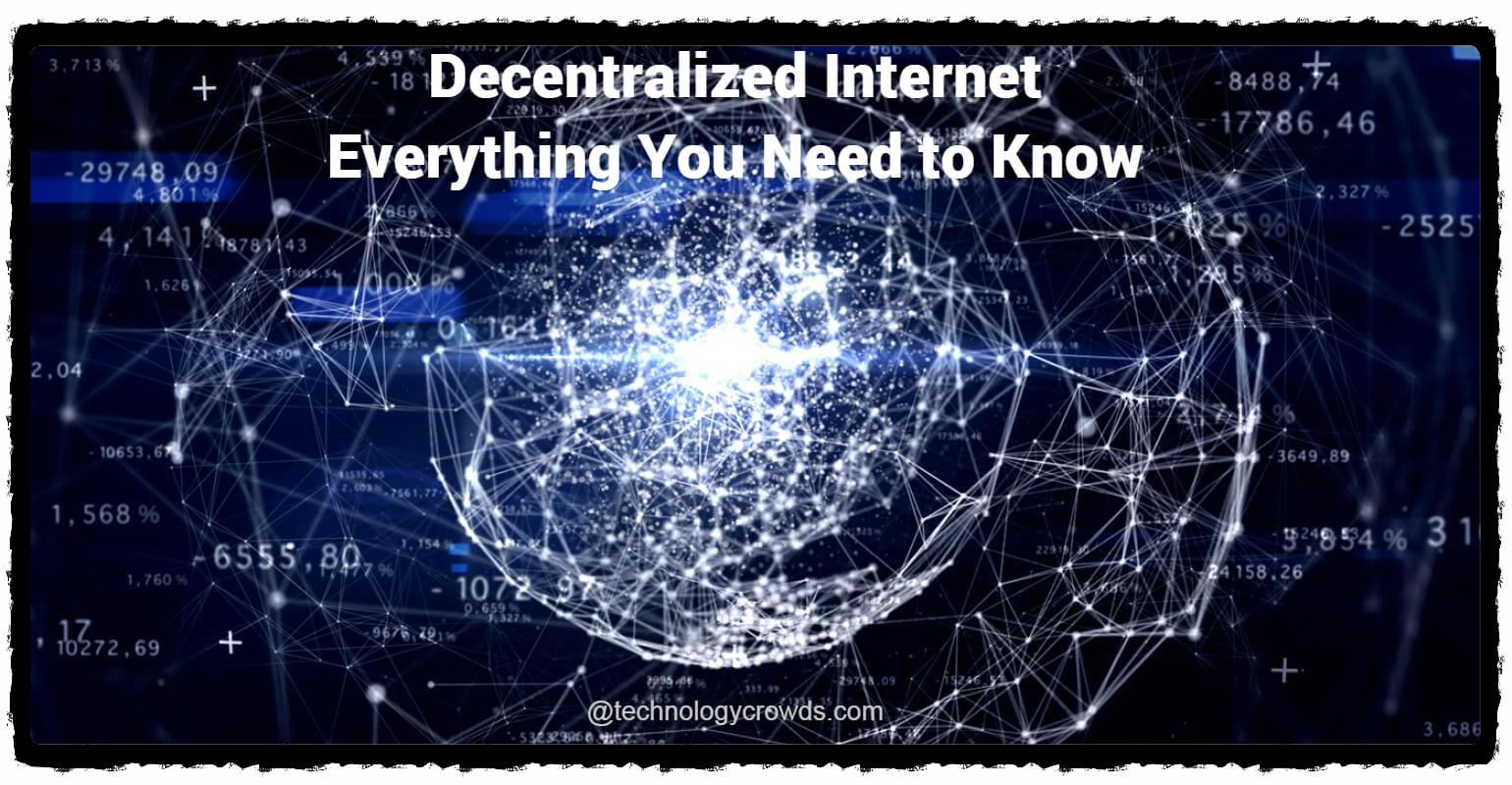Introduction
Three years ago, tech leaders from all over the world were invited to become a
part of the first Decentralized Web Summit. One of the personalities there at
the event was the creator of the World Wide Web (WWW), Sir Tim Berners-Lee
himself. The objective of this summit was to discuss an abstract concept
called, Decentralized Web. But what exactly is it? And how will it affect the
people who use the internet? Well, different web experts have defined the term
differently. However, the bottom line of their definition is to free the web
from powerful monopolies. Let’s now look at how it works and the hurdles it
will have to face.
Centralized Internet & Its Problems
Before getting to the decentralized web, let’s take a step back and examine
the internet in its current form. First, let’s get one thing clear: the
internet is not physically and legally centralized as no one corporation owns
it. However, there are some large servers that are either associated or
operated by big companies that are responsible for taking care of some
essential elements such as webpages, social media, and email. They make sure
that such services remain available to people. This means that the companies
who own those servers have somewhat of control over the internet.
Thus, it can be said that the internet is centralized. And this can be a bit
of a problem for everyone. After all, people usually share their personal
details on the web, whether it be a credit card number to shop online or their
email address to subscribe to a newsletter. So let’s now have a look at the
problems that the users of centralized internet may face.
#1. Servers Can Fail
Do you remember the satellite failure which occurred in 1998? This incident
caused the pagers to stop working across the United States. A lot of people
got affected by this, including carpet cleaners and plumbers who couldn’t be
contacted for new gigs. Today, the entire world is dependent on the internet.
This is why there’s such stiff competition in the market between different
ISPs, with each trying to offer better and improved deals such as
Cox bundles. Now imagine if the servers get targeted or malfunctioned, how much havoc
would be caused. Everyday life will come to a halt, and businesses will
struggle to run their operations smoothly.
#2. Companies Selling Your Data
Major companies that you rely on can actually be selling your data to other
businesses so the
businesses target better
with their ads. So, big corporations cannot be trusted. And sometimes, those
platforms that allow you to make a free account might be the ones selling your
data. In 2018, Facebook came under fire due to this, and the company’s founder
Mark Zuckerberg had to appear before the senate.
#3. Companies Censor or Throttle Data
Those ISPs who have a lot of power to control the pipelines which deliver the
internet to the people across the U.S. are actively searching for ways to
limit the amount of data sent so the users could become willing to pay more.
They usually do this by throttling the data. The worst part is that no one can
stop them as they have authority over the supply of the internet.
Decentralized Internet
Decentralized internet is much different from centralized internet. It is
going to depend on a peer-to-peer network that will be created on a community
of users. This means that companies with massive servers will be having no
control over the internet. Moreover, every website will be spread out across
hundreds of nodes on different devices. This will prevent the server from
crashing. The technology that will be powering decentralized internet is the
same that is behind cryptocurrency and its blockchain. Over the years, this
tech has become insanely popular. And many startups today are frequently
replacing some common internet services with blockchain.
The Hurdles of Decentralized Internet
The idea of decentralized internet sure sounds fascinating. After all, it is
offering a return to the open and free internet that everyone wants it to be.
But there are still some hurdles that should be addressed first
#1 Mass Adaption
The decentralized internet is a concept that will work perfectly if everyone
agrees to use it. However, it should be noted that people don’t usually like
changes. Also, considering how social media platforms such as Twitter and
Facebook have already got millions of people using them for years, it has
developed a level of stickiness that is not easy to beat.
#2 No One Wants to Take the Responsibility
Since decentralized internet depends on the peer-to-peer system, this will
take the responsibility of maintaining the internet away from the owners of
the servers and would put on the shoulders of users. This is actually great
for those who are inclined towards tech who know how it works but what about
the other people? It will take time for them to learn how the system works.
Plus, chances are that not everyone will be ready to take the extra
responsibility.
#3 Latency Issues
The users of the decentralized internet will have to face latency issues. This
means that the web pages will load slowly, and you just won’t be able to have
the same level of high-speed experience that you have today.
Conclusion
Cryptocurrency and decentralized internet are a lot closer than one might
think. How? Well, both of them share the same concept of deregulating an
important aspect of everyday life. However, as most people have started to
take a keen interest in crypto, the same could not be said for the
decentralized internet. This is because the latter has some problems to deal
with first. As soon as those issues such as the ones above are resolved, you
can see the world moving towards the decentralized internet.



Post A Comment:
0 comments: